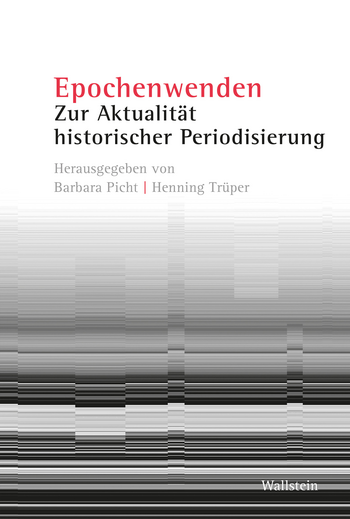


Der Berg rutscht, das heißt in China so viel wie, der Kaiser stirbt. Und in der Tat geschieht dies dann auch, nur wenige Wochen später: Am 9.9.1976 ist Mao Zedong tot—das Ende einer Ära. Chinesische dynastische Geschichtsschreibung macht diese Brucherfahrung vorhersehbar: Schlechte Wetter sind ein klarer Indikator für das Ende einer (politischen) Epoche und dieser Glaube hält sich offensichtlich auch nach Abschaffung des Kaiserhauses. Was kann die theoretische Bedeutung sein für die Globalgeschichte, von solchen vorausgesehenen „Enden”, die dann tatsächlich eintreten? Wenn wir die subjektiven Erwartungshorizonte und End-Erfahrungen von Zeitgenossen in den Mittelpunkt stellen und fokussieren auf deren historische Krisenanalysen von Momenten, die—wie sich dann jeweils später zeigt—tatsächlich das Ende von vertrauten Verhältnissen und Denkmustern bedeuten, und die auch global signifikante Auswirkungen haben, können wir dann die Frage nach der Kulturtechnik der Epochenbildung und deren Funktion für die Gegenwartsdiagnostik neu stellen und beantworten? Wie epochal sind solche vorhergesehenen End-Momente aus globaler Perspektive?
On 28 July 1976, an earthquake strikes in Tangshan, North-East China: 650,000 fatalities. This was to be one of the most devastating earthquakes of the 20th century. The earth quakes, a mountain slides, in China this indicates the death of an emperor. And indeed, just a few weeks later, on 9 September 1976, Mao Zedong is dead—the end of an era. Chinese dynastic history makes this rupture predictable: bad weather indicates the end of an era and clearly this belief carries beyond the existence of the Chinese empire.
What then can be the theoretical significance of such predicted endings that actually materialize for the writing of global history? What would happen, if we took the subjective horizons of expectation and specific end-experiences of historical actors seriously, focusing on those particular analyses of critical moments as epochal, which—as becomes apparent post factum—are indeed constituting the end of once-familiar patterns of thought, with global significance? Doing so, can we pose and answer the question of epoch formation as a cultural technique and its function for the diagnosis of the present? How epochal are these predicted endings, if seen from a global perspective?
Barbara Mittler (*1968) holds a Chair in Chinese Studies at CATS (Center for Asian and Transcultural Studies) at Heidelberg University which she helped co-found in 2019. For many years, she co-directed the Heidelberg Centre for Transcultural Studies (HCTS, formerly the Cluster of Excellence Asia and Europe in a Global Context, 2007-2019). She began her studies (Sinology, Musicology, Japanese) at Oxford (MA Oxon 1990). Her PhD & Habilitation are from Heidelberg (1994/1998). She spent time as fellow/visiting professor in Taiwan, the People’s Republic of China, Hong Kong, at Harvard, Stanford and, most recently, the EHESS in Paris. Her research focuses on the politics of cultural production in (greater) China covering a range of topics from music to visual and historical print media in China’s long modernity. She is member of the LEOPOLDINA and the Heidelberg Academy of Sciences.
mehr